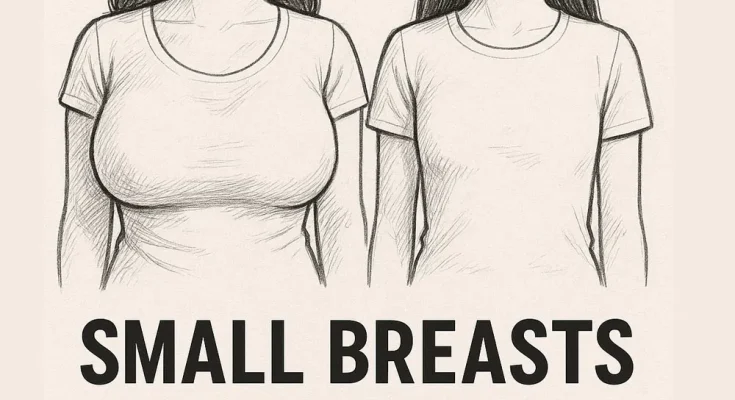When it comes to women’s health, breast size has often been linked to many myths and assumptions. Some wonder whether bust size plays a role in hormonal balance or overall well-being. The truth is, while hormones do influence breast development, breast size itself is not a measure of health. Let’s explore the facts, clear up common misconceptions, and share helpful tips for supporting hormonal wellness naturally.
The Science Behind Breast Size
Breast size is mainly influenced by genetics and hormones—particularly estrogen and progesterone. During puberty, these hormones stimulate breast tissue growth. Other factors like age, weight, and lifestyle habits can also affect breast appearance over time.
It’s important to understand that small or large breasts do not indicate poor health. Every woman’s body is unique, and bust size is not a reliable sign of hormonal balance or overall wellness.
Myths vs. Facts About Hormones and Breast Size
One widespread myth is that smaller breasts mean weaker health or reduced femininity. This has no scientific support. True health is defined by balanced nutrition, mental well-being, and physical vitality—not by physical appearance.
On the other hand, some research suggests that women with larger busts may have a slightly higher likelihood of certain conditions like heart disease or diabetes. However, these risks are more often linked to excess body weight rather than breast size itself. Maintaining hormonal balance and overall health is what really matters.

Tips for Supporting Hormonal Health
No matter your body type, these healthy habits can help promote hormonal balance:
-
Eat a balanced diet: Focus on fruits, vegetables, whole grains, lean proteins, and healthy fats. Foods rich in omega-3 fatty acids—like salmon, walnuts, and chia seeds—are especially supportive of hormone health.
-
Stay active: Regular movement helps regulate hormones and maintain a healthy weight. Try activities like walking, yoga, cycling, or dancing—anything that keeps you moving.
-
Manage stress: Stress can disrupt hormones over time. Simple practices like meditation, journaling, or deep breathing can help restore balance.
-
Consider natural support: Some natural supplements, such as evening primrose oil or vitex, may help support menstrual health. Always check with a healthcare professional before adding new supplements to your routine.

Natural Remedies for Women’s Wellness
Alongside daily habits, some natural remedies may provide gentle support:
-
Sage tea: Traditionally used to promote hormonal balance.
-
Maca root: Often praised for its energy-boosting and hormone-supporting benefits.
-
Ginger tea: A natural anti-inflammatory that may ease menstrual discomfort and support overall health.
Final Thoughts
Breast size is not a health indicator—it’s simply one aspect of body diversity. What matters most is caring for your hormonal and overall well-being through mindful eating, regular movement, stress management, and natural wellness practices.
Always remember to consult with a qualified healthcare professional before making significant changes to your diet or lifestyle. Prioritizing your health is the best step toward lasting balance and vitality.




